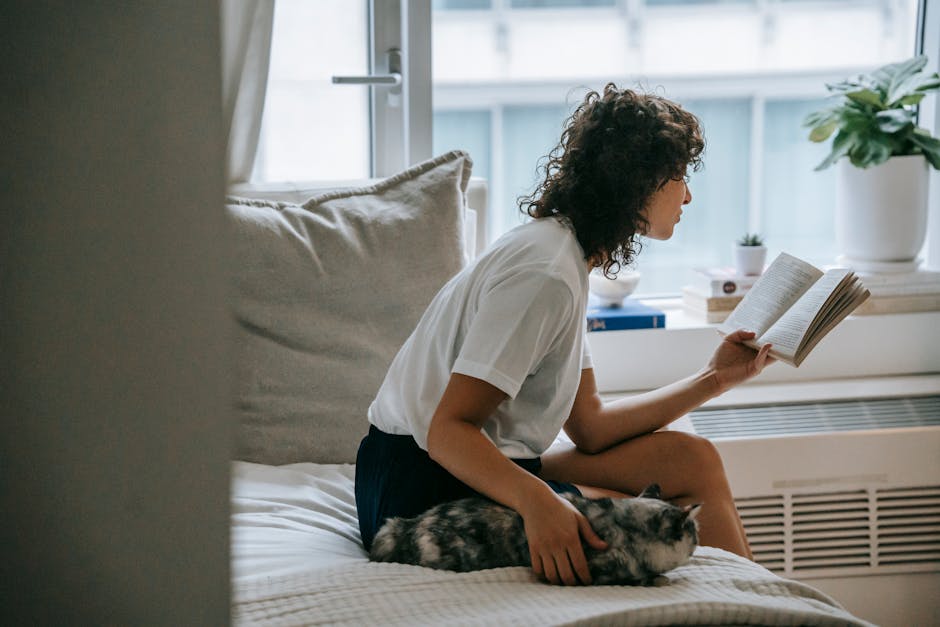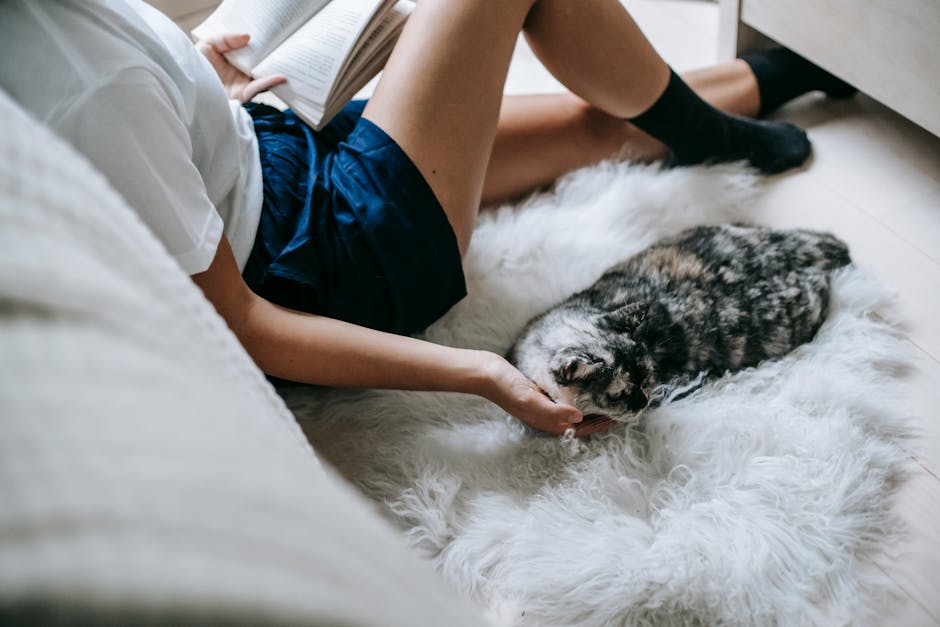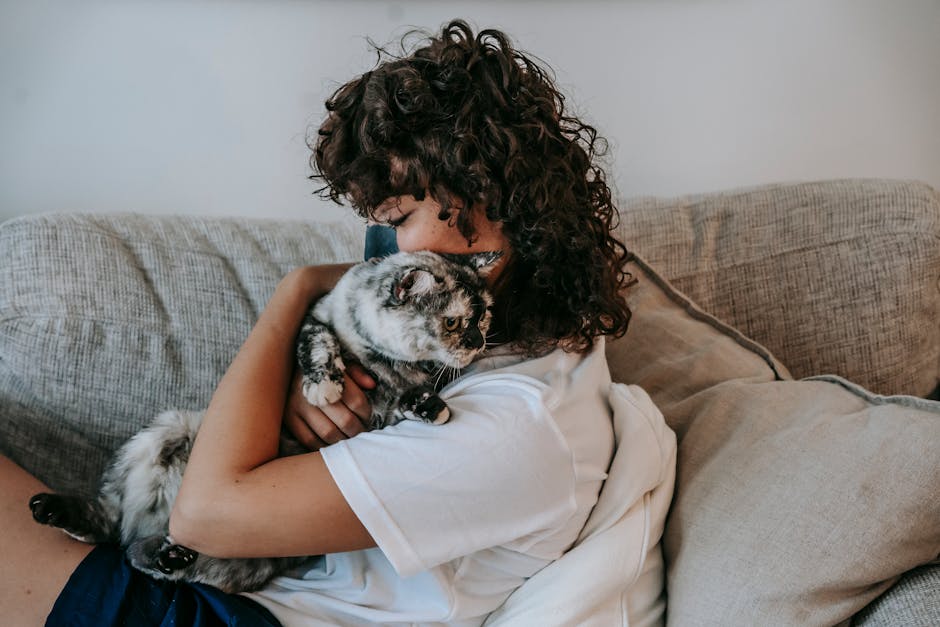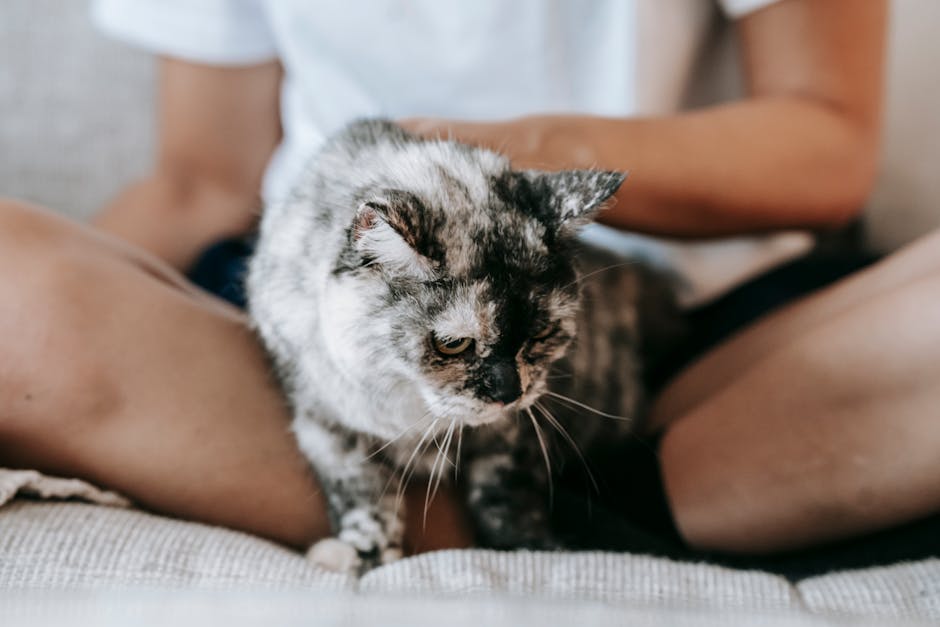When it comes to caring for your furry feline friend, it's essential to provide them with attention, food, and love. However, sometimes, you might have to leave your cat alone. This could be a cause for concern, especially if you're unsure how long your pet can go without your presence. In this post, we'll explore how long cats can go without their owners and what factors may affect their ability to stay alone. So, let's dive into the discussion and learn more about our feline friends' independence.
Factors that affect how long a cat can go without their owner (age, temperament, health, etc.).

Some cats may be able to go longer periods without their owner than others. A cat's age, temperament, and health can all affect how long they can manage on their own.
Younger cats and kittens require more attention, so they may not be able to last as long without their owner. Older cats may have health issues that require medication or a special diet, so they may need more frequent check-ins.
The temperament of a cat is also an important factor. Some cats are more independent and do not need as much human interaction, while others are more social and may become anxious or depressed without their owner's presence.
Ultimately, it's important to consider each individual cat's needs before leaving them alone for an extended period. Owners should always make sure their feline companion has enough food, water, and a clean litter box, as well as a safe and comfortable place to rest. Additionally, it's recommended to have a trusted friend, family member, or pet sitter check in on the cat every day or every other day to ensure their well-being.
How to prepare your cat for your absence and reduce separation anxiety.

Leaving your cat for a while can be a difficult decision, especially if you're worried about how your furry friend will cope without you. Fortunately, there are several things you can do to prepare your cat for your absence and minimize separation anxiety.
Firstly, introduce your cat to a new routine a few weeks before you leave. This could include feeding them at regular times, playing with them, and spending quality time together. This will help them adapt to a new routine before you go.
Secondly, make sure your cat has access to plenty of toys and places to relax. A cat tree or scratching post can be great options for cats who enjoy climbing, while puzzle toys can keep them stimulated mentally.
Thirdly, ensure that your cat has a comfortable living environment. This includes providing a clean litter box, fresh water, and nutritious food, as well as a cozy bed or spot to nap in.
Lastly, consider hiring a cat sitter or asking a trusted friend or family member to check in on your cat while you're away. This can help reduce any stress or anxiety your cat may experience by providing them with attention and care in your absence.
By taking these steps before you leave, you can feel confident that your cat will be happy and safe while you're away. With some careful preparation, you can enjoy peace of mind knowing your furry friend is in good hands.
Tips for leaving your cat alone for short periods of time (1-3 days).

Leaving your cat alone for a short period of time, say for a day or two, is common for most cat owners. While most cats can easily manage without their owners for a few hours, it's essential to ensure that they have enough food, water, and mental stimulation when left alone for an extended period.
Here are some tips that would make sure your kitty stays healthy and happy while you’re away:
1. Ensure that your cat has enough food and water for the time you'll be away. You may use an automatic feeder to schedule meals or ask a friend or a neighbor to help.
2. Provide lots of toys, scratching posts, and climbing spots to keep your cat occupied when you're gone. Cats love to play and explore their surroundings; keeping them entertained would help reduce boredom and potential destructive behavior.
3. Arrange for a trusted person to check in on your cat at least once a day. This could be a family member, a neighbor, or a professional pet sitter. Having someone come in to feed, water, and spend time with your cat while you’re away can relieve stress and keep your pet healthy.
4. Ensure that your home is safe for your cat. Keep toxic substances away from reach, and seal doors and windows to prevent any accidents.
5. Consider providing your cat with a cozy and comfortable place to rest while you’re away. This could be a favorite spot on the couch, a comfy bed, or their own cozy cat bed.
By following these tips, you can ensure that your cat stays safe and happy during your short absence. Remember, cats are social animals, and they require lots of love and attention to thrive.
Advice for leaving your cat alone for longer periods of time (1-2 weeks).

When it comes to leaving your cat alone for an extended period of time, it's important to take certain precautionary measures so that your furry friend stays happy and healthy while you're away. Here are some key tips to keep in mind:
1. Choose the right cat sitter: If you're going to be gone for more than a few days, it's important to have someone come and check on your cat regularly. This could be a friend, family member, or a professional pet sitter. Make sure whoever you choose is reliable and experienced with cats, and give them clear instructions on how to care for your pet.
2. Provide plenty of food and water: Be sure to leave enough food and water for the duration of your absence. If you're going to be gone for more than a week, consider investing in an automatic feeder to ensure your cat is being fed on a regular schedule.
3. Keep the litter box clean: A dirty litter box can lead to health problems for your cat, so make sure it's cleaned regularly. If you're going to be gone for a while, consider setting up a self-cleaning litter box that will keep things tidy for your cat.
4. Provide plenty of toys: Cats need stimulation and exercise to stay happy and healthy, so make sure you leave plenty of toys and playthings for your cat to enjoy while you're gone. Scratching posts, feather toys, and laser pointers are all great options.
5. Use pheromone sprays or diffusers: Pheromone sprays and diffusers can help reduce stress and anxiety in cats, which can be especially helpful when they're left alone for extended periods of time. Consider using these products to keep your cat feeling calm and relaxed.
By following these simple tips, you can help ensure that your cat stays safe and happy while you're away for an extended period of time.
Discussing the importance of having a trusted pet sitter or cat sitter, and how to find one.

Leaving your cat alone for an extended period of time may not be a viable option for many cat owners. Cats are social animals and can get lonely and anxious without proper attention and care. As a responsible cat parent, it's crucial to find a trusted pet sitter or a cat sitter who can give your furry friend the love and care they need when you're away.
Finding a reliable pet sitter can be a bit overwhelming, but there are a few things you can do to ensure you find the right one. Start by asking for referrals from family, friends, or your veterinarian. You can also check online reviews and ratings for professional pet sitters. Once you have a list of potential sitters, conduct a background check to ensure they have proper qualifications and certifications. It's essential to choose someone who has experience with cats and is comfortable handling any emergencies that may arise.
Before leaving your cat with a pet sitter, make sure to provide them with detailed instructions about your cat's feeding schedule, medication routine, and any special needs they may have. It's also a good idea to leave your contact information and your veterinarian's information in case of an emergency.
In summary, having a trusted pet sitter or cat sitter is essential for ensuring your furry friend receives proper care and attention while you're away. Take the time to find the right person and provide them with detailed instructions to ensure your cat remains happy and healthy in your absence.
The role of automatic feeders and water dispensers in caring for your cat in your absence.
If you're planning to go on a trip or just leaving for work for the day, it's important to make arrangements for your feline friends. Of course, we'd all love to stay with our cats 24/7, but that's not always possible. However, automatic feeders and water dispensers can make a huge difference.
Automatic feeders and water dispensers can help ensure that your cat has access to fresh food and water even when you’re not around. These devices are designed to dispense food and water at scheduled times and in specific amounts, helping to maintain your cat's health and well-being.
Some automatic feeders are even programmable, allowing you to customize when and how much food your cat should receive. This feature ensures that your cat is getting the right amount of food at the right time and can help prevent overeating or undereating.
Water is also incredibly important for your feline friends, and automatic water dispensers can be especially helpful if you're not going to be around for a few days. These devices ensure that there's always fresh water available for your cat, which can help encourage them to stay hydrated.
In addition to automatic feeders and water dispensers, there are also other devices available that can help keep your cat entertained and happy while you’re away. From interactive toys to window perches, there are plenty of options to keep your kitty occupied and content until you return home.
Overall, automatic feeders and water dispensers are a great investment for busy cat owners. Not only do they make it easier to care for your feline friends, but they can also help give you peace of mind while you're away.
Recommendations for cat toys, scratchers, and other forms of entertainment to keep them stimulated.

Cats are intelligent and curious creatures that can become easily bored when left alone for extended periods. Without proper entertainment or stimulation, cats may resort to destructive behavior such as scratching furniture or other household items. To keep your furry companion entertained and happy, consider investing in some stimulating toys, scratchers, and other forms of entertainment.
One option is a cat tree, which provides multiple levels for your cat to climb, play, and scratch. Cat trees come in various sizes and styles, so be sure to choose one that suits your cat's preferences and your living space.
Interactive toys such as laser pointers, feather wands, and puzzle feeders can also provide mental and physical stimulation for cats. These toys encourage your cat to use their natural instincts to hunt, play, and problem-solve.
Scratchers are a must-have for any cat parent. Scratching is a natural behavior for cats, and providing them with designated scratching posts or pads can protect your furniture and keep your cat's claws in good condition.
In summary, offering a variety of toys, scratchers, and other forms of entertainment can keep your cat stimulated and entertained while you're away. Experiment with different toys and find the ones your cat enjoys the most to ensure they stay happy and healthy.
Warning signs of a cat experiencing distress or loneliness and how to respond.

One of the main concerns of cat owners is how long their feline friends can go without them. While cats are generally independent creatures, they do thrive on human attention and can experience distress or loneliness if left alone for too long. It's important to be aware of the warning signs of a cat in distress, such as excessive meowing, destructive behavior, or refusing to eat or drink.
If you notice any of these signs, it's important to respond quickly. This could mean hiring a pet sitter to come and check on your cat while you're away, or even arranging for a friend or family member to take your cat in for a few days while you're away. You can also try leaving out interactive toys or treats for your cat to play with while you're gone, such as puzzle feeders or catnip-stuffed mice.
Ultimately, the best way to ensure that your cat doesn't experience distress or loneliness is to make sure that they receive plenty of attention and stimulation when you're home. Spend time playing with and cuddling your cat each day, and provide them with plenty of toys, scratching posts, and comfortable places to nap. By doing so, you can help to ensure that your cat remains happy and healthy, even when you're not around.




